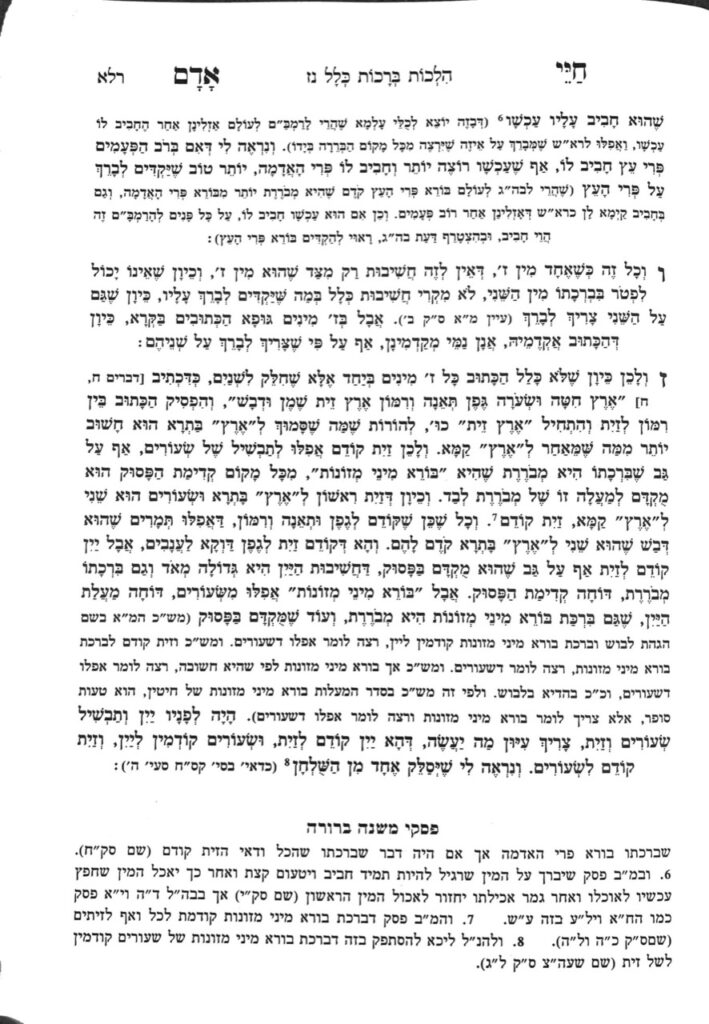We are beginning siman 6. In siman 6, 7 and 9, the Chayei Adam works with an assumption which impacts the halachos of these simanim. We will learn that the Mishnah Berurah argues on this assumption.
The Magen Avraham grapples with the idea that, on the one hand, we have a concept that the closer a species of the shivas haminim is to the word eretz, the earlier its precedence. On the other hand, certain brachos are more mevoreres (specific) than others, and the more mevoreres the bracha, the earlier its precedence (see shiur 1118). The Chayei Adam assumes that although the bracha mezonos is more mevoreres that the bracha haeitz or haadama, it will not take precedence against something mentioned explicitly in the pasuk. If so, when we look at the pasuk, we see that olives, which are right next to the second eretz in the pasuk, should precede barley, which is one word removed from the first eretz in the pasuk. The Magen Avraham explains that if the Torah preceded one item before another (even if it is not as mevoreres), it is an indication that the Torah wants us to treat it with more chashivus than the other.
Thus, the Chayei Adam writes at the beginning of siman 6 that all of the halachos we have learned until now regarding seder brachos apply when one item is of the shivas haminim and the other is not (or neither are of the shivas haminim). However, when both are of the shivas haminim, their order in the pasuk will indicate the order of their brachos, regardless of all other considerations.
Summary
The Chayei Adam holds that when two items are of the shivas haminim, their order in the pasuk will indicate the order of their brachos, regardless of all other considerations. We will learn that the Mishnah Berurah disagrees on this psak.



